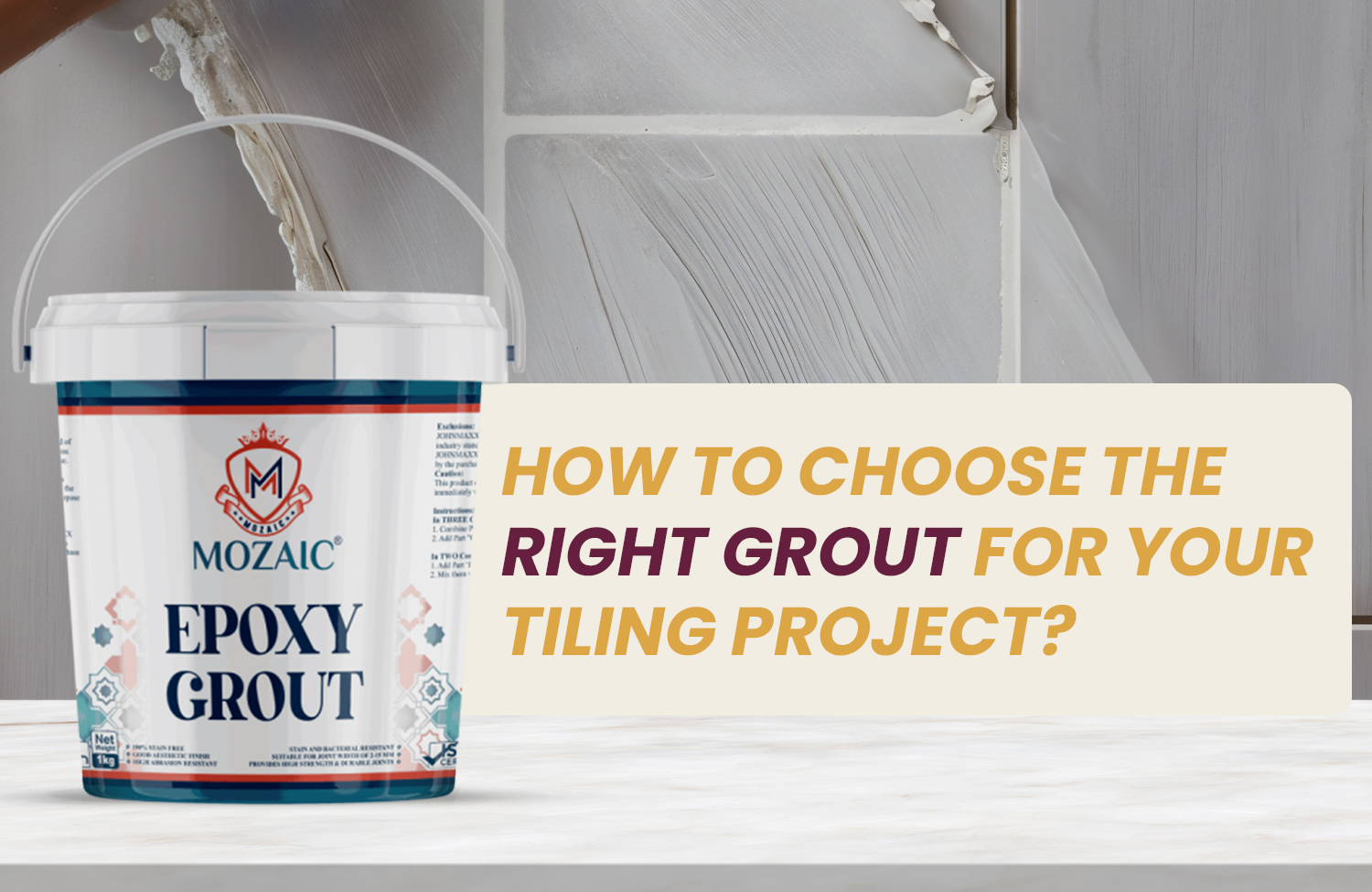When we start a tile project, whether our project is regarding the bathroom, kitchen, or outside, we usually focus on the tiles. That’s normal. Tiles are the most visible part. But there’s something else that’s more important than anything: this is grout and especially the best tile grout.
Grout is the material that fills the gaps between tiles and you can also call it tile grout:
- It holds the tiles in place.
- It also keeps out water and dirt.
Plus, it gives your tiles a clean, finished look.
Why Does the Right Grout Make a Big Difference?
Choosing the right tile grout is key. Otherwise, your tiles may crack or shift over time.
Let’s look at a few options:
- Cement-based grout works well for most indoor spaces. However, it’s affordable and easy to use.
- Epoxy grout is stronger and more water-resistant. As a result, it’s best for areas like bathrooms or kitchens.
For example, commercial spaces with high moisture need something durable. Brands like Mozaic Chemicals offer epoxy grouts made for heavy use.
What If You Use the Wrong Grout?
Using the wrong grout can lead to problems. Challenges such as:
- Tiles can become loose, grout can crack, and colors can fade. For this reason, it’s wise to coordinate the tile grout with your space.
Overview of Tile Grouting Types
Let’s see the two main grout types, cement-based and epoxy grout, and when to use them. In the above section, we already discussed the basic overview of these tiles. Now, we will elaborate on each tile.
1. Cement-Based Grout:
This grout is the most common for homes and small places. In addition, it is cheap and easy to use. It also comes in many colors.
Use it for:
- Indoor rooms, such as bedrooms and living rooms.
- Tiles like ceramic or porcelain.
It works well for most simple tile jobs.
2. Epoxy Grout:
If your space gets wet or is busy, epoxy grout is better. With the help of these grouting tiles, we can effortlessly resist water, stains, and chemicals. Apart from that, it is very strong and lasts a long time.
Use it for:
- Bathrooms, balconies, kitchens, and outside areas.
- Places with heavy traffic, like restaurants.
It costs more, but it saves money on repairs later.
Why Tile Grout Is Important?
In starting a tile project, usually it is the tiles, colors, style, and size that you first consider. But grout? This aspect leaves many people. However, grout is still a very important part when it comes to increasing the life of your tiles and improving their appearance.
Let’s look at why grout really matters.
- Keeps Tiles in Place: The grout or the tiles fill these spaces and hold the tiles together, and stop them from moving. Without it, shifting of tiles is possible; this can lead to cracks or even have the tiles get unfastened.
- Helps block water: If water gets in, then it will grow molds as well as be a root of decay.
- Expresses the Beauty of Tiles: You can coordinate grout with your tiles or select a color that complements its surroundings. Therefore, this is very crucial since it brings closure to the design and also aids in decorating your space.
- Makes Cleaning More Convenient: In the absence of grout, dirt and crumbs can seep into/ between tiles, and that is a bigger problem. These gaps are hard to clean.
How to Choose the Right Tile Grout?
The following section will help you to analyze the perfect tile grouting for you. Factors are as follows:
- Check Your Tile Type: Look at your tiles. However, different tiles need different grout.
- Porcelain and ceramic tiles work with cement or epoxy grout.
- Glass tiles need unsanded grout so they don’t get scratched.
- Natural stone tiles need unsanded or epoxy grout to stop stains.
Tip: Ask the tile seller if you’re not sure.
- Measure the Gaps: Look at the space between tiles.
- If it is smaller than 1/8 inch, use unsanded grout.
- If it is 1/8 inch or bigger, use sanded grout.
- Using the wrong grout can cause cracks.
- Think About Where You Are Tiling:
- For bathrooms, kitchens, and outside, use epoxy grout. It keeps water and mold away.
- For dry rooms, cement grout works well. But remember to seal it.
When in doubt, pick grout that handles water well.
- Choose a Grout Color: You have this to thank for the grout color selection, simply because the color of grout will impact the way your wall or floor feels.
- Fit the grout color to the tile color so that you don’t disrupt the appearance.
- Choose a contrasting color to let the tiles pop.
- Neutral colors mask dirt and go great with so many tiles.
- Think About How to Care for It:
- Cement grout needs sealing often.
- Epoxy grout lasts longer and cleans easily, but is harder to use.
- Furan grout is very strong, but mostly for big projects, and needs a professional to install.
- Think About Installation:
- Cement grout is easy for beginners.
- Epoxy grout is harder and better for pros.
- Furan grout needs a professional.
Wrapping Up!
Choosing the perfect tile grouting is necessary for your tiling project. If there is even a single factor that is not appropriate, this alone can be the reason for breaking the relationship with your potential customer. If you don’t get along with anything that has been discussed so far, just drop your query in the comment box.
Moreover, if you have any doubts or are looking for affordable materials for building the home that you want, just consider Mozaic Chemical. This is one of the recommended companies in North India, which is the best dealer of Tile Adhesive & Grout.





